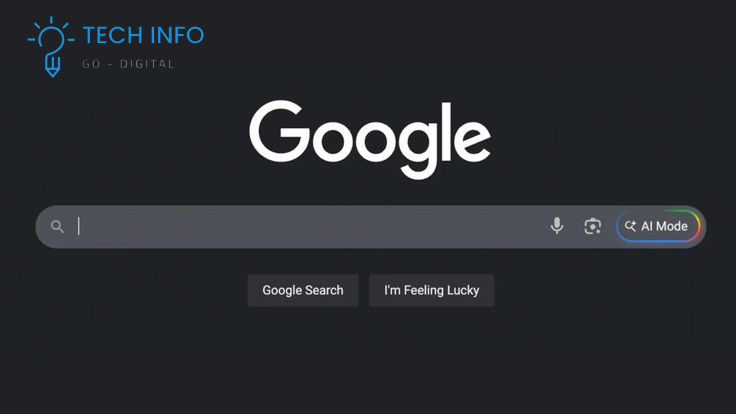Table of Contents
Toggle🧠 Google Denies AI Search Features Are Killing Website Traffic: The Full Story

With the rapid evolution of artificial intelligence, particularly in how it’s integrated into search engines, a heated debate has emerged: Are AI search features killing website traffic?
While many publishers and SEO professionals claim they are experiencing massive declines in organic traffic, Google has publicly denied these claims. According to the tech giant, its AI-powered Search features are not destroying the open web—but rather improving user experience and even helping some websites gain higher-quality visits.Google denies AI search features
So, who’s right? Let’s explore the controversy, the facts, and what this means for online content creators.
🚀 What Are AI Search Features?
Google’s AI features, especially AI Overviews, are designed to summarize search results directly on the search engine results page (SERP). This means instead of scrolling through blue links, users can get instant answers based on a blend of reliable sources.
For example, if a user searches “how to lose weight fast,” the AI might generate a concise, bullet-pointed summary based on top-ranking content—without requiring the user to click any link.Google denies AI search features
This approach saves time for users, but for website owners, it poses a risk: if users get their answers from Google directly, why visit the original site?
🧩 What Google Is Saying
In an official blog post published in August 2025, Google strongly denied that AI Overviews are harming websites. Key takeaways from their defense include:
- Traffic Is Not Declining Broadly: Google stated that total traffic from Search to the web has remained “more or less stable” year-over-year.
- Clicks Are Higher-Quality: Google claims users who do click after reading an AI Overview tend to spend more time and engage better.
- Different Sites Are Gaining: Websites with unique content, such as personal blogs, video content, how-to guides, and community forums, are reportedly seeing growth.
- Search Volume Is Increasing: AI Overviews are encouraging users to ask more detailed and diverse questions, which supposedly increases total queries.Google denies AI search features
Essentially, Google’s argument is: AI isn’t killing traffic—it’s changing it.
📉 The Other Side: What Publishers Are Experiencing
While Google paints an optimistic picture, many website owners and industry experts are seeing something different:
1. Declining Click-Through Rates (CTR)
Since AI Overviews display summarized content directly, users are less likely to click on the source link. As a result:
- CTR for some publishers has dropped by 30–60%.
- Zero-click searches (where users don’t click any result) have increased dramatically.
2. Smaller Publishers Are Hit Hardest
Independent websites and niche bloggers, who rely heavily on organic search traffic, are reporting sudden drops in page views and revenue.
3. Legal and Antitrust Concerns
Some companies, such as Chegg, have even filed legal complaints, alleging that Google’s AI is repurposing their content without proper attribution or traffic redirection.
🤖 AI and Zero-Click Search: The Real Threat?
“Zero-click search” isn’t new. Even before AI, Google had featured snippets, instant answers, and “People Also Ask” sections. But with AI, these zero-click interactions have become more advanced and more frequent.
In a traditional search model:
User → Query → Clicks a link → Visits website
In the AI model:
User → Query → Gets AI answer → No need to click
While users benefit from faster answers, the original content creators often lose out. Imagine investing time, money, and creativity into a high-quality blog post—only for AI to summarize it in one line with no user engagement.
📊 Data Doesn’t Lie: Conflicting Numbers
Here’s what different sources are saying:
| Source | Claim |
|---|---|
| Google (2025) | Search traffic stable; some content types gaining |
| Search Engine Journal | CTR for top organic links declining due to AI summaries |
| Reddit/SEO forums | Many publishers report traffic losses of up to 50% |
| NYPost / WSJ | AI Overviews disrupting ad revenues, legal complaints filed |
| SEO Analytics Tools | Spike in zero-click queries post-AI rollout |
So while Google insists the sky isn’t falling, much of the independent data suggests clear, negative impacts for many websites.
🌐 The Bigger Picture: Is the Web at Risk?
The open web thrives on discoverability, traffic, and monetization. If AI continues to summarize and answer questions without proper redirection or attribution, it could discourage:
- Bloggers from publishing deep, researched content
- Journalists from producing investigative work
- Educational websites from offering free resources
This isn’t just about traffic—it’s about incentive. Why create content if it won’t bring visibility or income?
🛡️ How Publishers Can Adapt
Even if AI is reshaping how users interact with search, there are strategies to stay visible:
1. Focus on E-E-A-T
Google values content with Expertise, Experience, Authoritativeness, and Trustworthiness. Invest in creating content that showcases your unique human voice.
2. Use Structured Data
Implementing schema markup (e.g., FAQs, How-to, Reviews) helps search engines understand and properly display your content.
3. Create Multimedia Content
Videos, podcasts, infographics, and interactive tools are less likely to be replaced by AI summaries.
4. Build Direct Channels
Relying only on search traffic is risky. Grow your email list, social media presence, and direct traffic to your site.
5. Explore AI Licensing
Some AI companies are starting to license content from creators. Stay informed about potential partnerships or monetization opportunities.
🧭 Final Thoughts: Who’s Right?
Is Google being honest? Or are they downplaying the damage?
The answer may lie somewhere in the middle.
✅ Google may be correct that some websites are thriving in the AI era.
❌ But it’s also clear that many others are struggling, especially if their content is purely informational and easily summarized.
The future of content and traffic will depend on how fairly and transparently AI systems credit and support creators. If done responsibly, AI can enhance the web. But if not, it may undermine the ecosystem that gave it the knowledge to begin with.Google denies AI search features
Conclusion
Google’s denial of AI search features harming web traffic has sparked serious discussion in the tech and publishing worlds. While the company maintains that AI is helping users and not hurting content creators, independent data and user reports tell a more complicated story.Google denies AI search features
The digital landscape is evolving fast. As a content creator, staying informed, adaptable, and diverse in traffic sources is more critical than ever.





